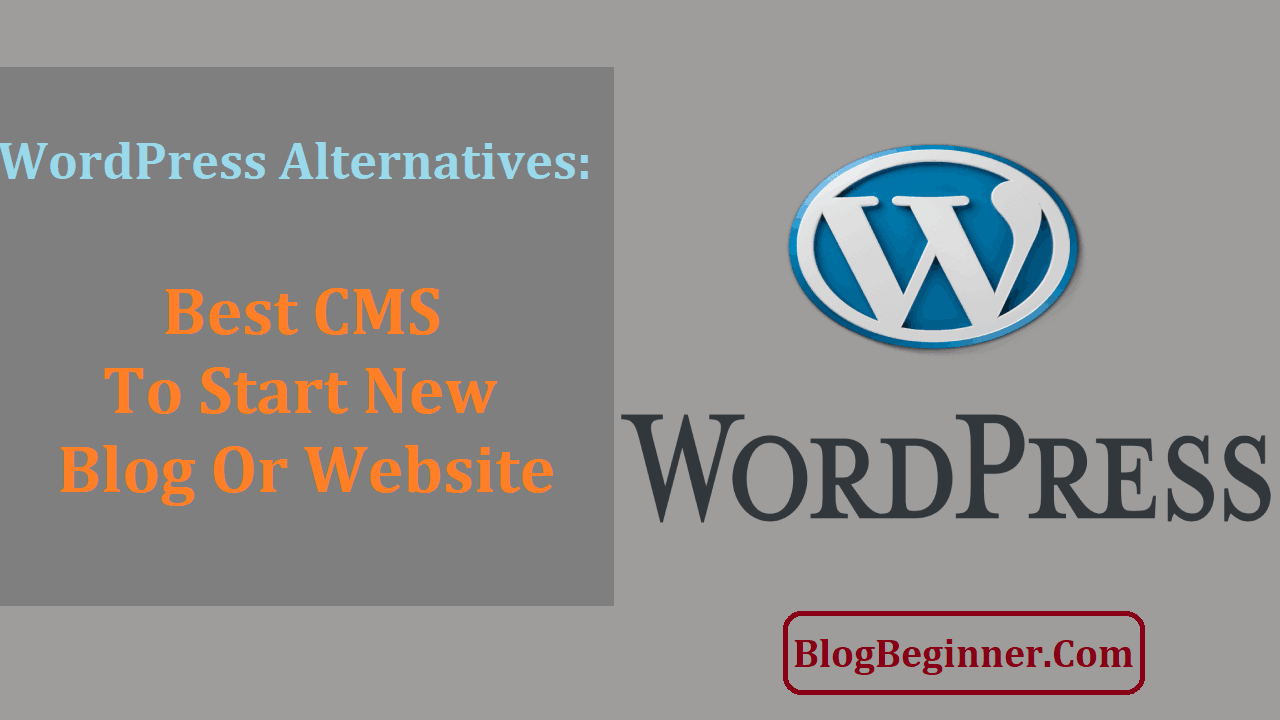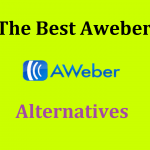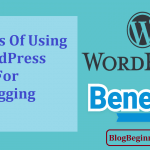If you are a blogger, you should know WordPress’ Content Management System inside out.
After all, WordPress is the most preferred choice for blogging platform today.
It runs millions of online blogs at present, owing to its flexible and customizable features.
It also offers hundreds of downloadable themes and myriads of plugins as well. The best part is, it is FREE!
There may come a time when you will feel a need to change your blogging platform to address your specific needs.
You may want to come up with a new blog design, launch a new blog, and transfer to a new host, among other reasons.
Thus, you look at other CMS solutions that may offer better features than WordPress.
Having said that, here are the 10 Best Alternatives to WordPress (both free and paid) that may offer the CMS solutions you are looking for:
Contents In Page
1. Joomla – Free
A free, open source, and multi-purpose CMS, Joomla is popular to bloggers, and small to large businesses and organizations.
Joomla allows you to create and build different kinds of websites and web-based applications.
It has the support of a wide community of developers and users.
While the program is a CMS, you can also use it as a platform for your blog. It has many of WordPress features, plus some additional capabilities.
There are things that Joomla can offer that WordPress can’t.
For one, Joomla offers templates and extensions. It also has extensive documentation, and a community support system.
You can run Joomla on many web hosting platforms.
Joomla comes with lots of extensions like modules, components, templates, plugins, libraries, files, packages, and languages – each with a particular purpose and developed by Joomla itself.
You can find thousands of free plugins at the Joomla home page.
The modules are flexible. You can easily manage your site even if you have hundreds of subpages.
Joomla is likewise SEO-friendly.
You can expect good SEO ranking with many of the generated URLs.
But, you may find it difficult to understand the interface at the start.
WordPress may have a bigger third-party community, and some of the Joomla plugins may be difficult to run.
In short, it isn’t as user-friendly compared to WordPress.
Overall, Joomla can be a great WordPress alternative.
It’s ideal for websites that have lots of contents, corporate sites, multi-media sites, educational websites, advanced web projects, and large publishing houses.
2. Drupal – Free
Another widely-used open source CMS platform, Drupal runs millions of business websites and applications online.
It is popular for building personal websites and blogs, social networking sites, forums, as well as enterprise-based applications.
Drupal offers myriads of themes, designs, plugins and modules that allow you to create and build any type of website you prefer.
It offers the ideal platform to set up feature-packed websites.
It allows you to build online communities, online stores, and media portals, among many others.
Like WordPress, Drupal boasts of a developer community and a massive user base.
About 2.1% of all online sites run on Drupal.
This is equivalent to a market share of 4.7%. The platform offers WordPress-like themes and modules.
The software requirements are also the same as WordPress and Joomla. In fact, Drupal runs on all web hosts that support WordPress.
Drupal is a good option if you are planning on building a highly-advanced website.
The platform can handle large amounts of data. It is better suited for advanced users than newbies.
This is because you need to have a high skill level to optimize the use of the platform.
But, once you get the hang of using it, everything will be a breeze.
The advanced admin panel has 5 sections: Appearance, Content, Structure, People, and Configuration.
The multilingual platform offers more than 70 languages.
To sum it all up, Drupal is suited for experts and advanced users.
It requires a bigger learning curve compared to WordPress.
3. Wix – Free and Paid ($1/month)
Wix is more of a website builder than pure CMS like Drupal and Joomla.
This way, it is not necessary to install the program on your website.
Wix will host it for you.
This allows you to build your site via the interface. But, you can still opt to use your own domain name.
A freemium website builder, Wix allows you to build your website entirely using drag & drop.
Lots of Wix templates are available, which you can edit as necessary.
Simplicity is the biggest advantage of Wix.
Thus, it is well-suited for you if you are a beginner.
The free plan doesn’t allow you to use your own domain name.
You will also need to display ads on your site.
Going with a premium plan will help you avoid these issues.
In addition, you will have the ideal tool to come up with a stunning website.
With Wix, you have access to a wizard-like environment that provides guidance throughout the entire website-building process.
There are more than 500 premade designs to choose from.
Each one has been optimized for tablets and other mobile devices.
You can create an entire website through the drag & drop feature.
You can even find a blog module, and functional editors for images and text content.
Since Wix offers a hosted solution, you don’t have to worry about finding a host for your site.
This way, you can focus on content creation.
4. Shopify – Paid (from $29/month)
One of the most preferred eCommerce solution today, Shopify offers a great alternative to WordPress for creating online shops.
Shopify is a simple, stable, and secure platform that allows you to grow your online business with minimal effort.
Shopify, will host your online store.
This way, you can focus on selling your products.
You have access to incredible eCommerce-based features.
These include inventory management, shopping cart module, payment gateway options, and automatic tax handling, among many others.
The platform offers hundreds of designs and themes.
It is also optimized for tablets and other mobile devices.
An integrated blogging platform is also available.
You likewise have access to traffic analytics.
Shopify is ideal for eCommerce.
New business owners and those who want to set up an eCommerce shop with minimal technical knowledge can benefit from the platform. It is user-friendly and flexible.
5. Ghost – Paid (from $8/month)
An open source and lightweight CMS, Ghost is based on NodeJS.
It is a popular content management system built more for online publishing and blogging, rather than complex websites.
The platform provides a clean blogging and writing experience both for bloggers and readers.
If you want to come up with an elegant but simple, and easy to manage site, then Ghost is for you.
The product comes in 2 basic versions: the professional version ($8 to $200/month), and the free version that you can download and install on your server.
This means the software is available both as a downloadable software or hosted blogging platform.
The interface is intuitive and easy to use.
It allows you to create and edit content using Markdown syntax.
You can also edit using the drag & drop feature.
All designs are mobile-optimized.
Ghost is a good alternative if your focus is on blogging. It offers features developed using the latest technologies, and are intended to provide a richer blogging experience.
With lots of themes to choose from, you can customize your page layouts.
You can also inject analytics codes, schedule your posts, and many others.
You have complete control over theme development and API integration.
6. Weebly – Free and Paid (from $12/month)
A completely hosted online site builder, Weebly is a remarkable alternative to WordPress.
It houses your site, and takes care of all related technical details. With Weebly, you can build your ideal site fast.
As one of the easiest to use website building tools available, Weebly makes website creation accessible to anyone.
It offers a wide array of creation tools for stunning and elegant websites.
There are more than 100 premade designs in 8 different categories. Each design is optimized for use in mobile devices.
Weebly offers a good amount of great themes, and features a drag & drop content builder.
It also allows integration with social media.
The platform offers blogging and eCommerce modules as well. Weebly websites get a subdomain by default such as yoursite.weebly.com.
You can get a custom domain, but for a fee.
In summary, Weebly is ideal for use by single-purpose and smaller websites.
7. SilverStripe – Free
Another open source CMS, SilverStripe focuses more on content management than blogging.
Compared to the other CMS solutions mentioned in this post, it is relatively new.
But, it is fast gaining in popularity.
To-date, the platform has garnered a community of more than 24,000 community members, and over 1,000,000 downloads.
Like WordPress, SilverStripe is available in dozens of different languages.
SilverStripe owes its popularity to its user-friendly admin interface and development versatility.
It also assumes responsibility for the SEO aspect of your website.
If you want to come up with a professional looking website within minutes, then SilverStripe is for you.
It has a wide range of tools that you can use. It also has lots of well-designed templates and functional modules.
One drawback is the platform’s lack of documentation.
Likewise, the number of available modules is less than what WordPress offers.
8. Squarespace – Paid (from $12/month)
A closed source software, Squarespace is a versatile builder that is popular for blogs, portfolio sites, and online stores.
It is ideal for casual users who want to build a basic website.
It has an easy to use interface.
You can use the drag & drop builder to customize and add your website’s elements.
By using Squarespace, you eliminate the need to find a hosting service, buy a domain, and worry about all the technical stuff.
All you need to do is to create your account with Squarespace.
Within minutes, you can already have a working website.
The platform is great for small-scale websites.
It has a decent variety of useful components.
Your site will also enjoy a fast loading time.
The downside is, there’s no third party extension and plugin support.
To sum it up, Squarespace’s ease of use is what makes it a good WordPress alternative for website building.
9. Concrete5 – Free
A free and open source content management system, Concrete5 allows you to come up with eye-catching and powerful websites in no time.
There is innovation in its simplicity.
Anyone can build a website in a matter of seconds.
It allows you to edit quickly using the powerful editor.
Thus, you can customize your website exactly how you want it – fast! It sets no limits to your creativity. Developers would find the robust and flexible framework handy in building stylish web applications.
The wide range of available add-ons will help you extend your website’s functionality.
The personalized colors, fonts, and layouts will help you achieve the custom look you prefer.
The form builder allows easy creation and editing of forms.
The platform also supports mobile responsiveness and optimization.
It uses the latest CSS, JavaScript, and HTML techniques.
Integrated reporting is in a single interface.
You can even include a commenting system.
Comcrete5 is search-optimized.
Its social share buttons are fast and responsive.
Your sensitive bits of information are safe, as the platform uses the latest technology in security.
Support is also remarkable. Concrete5 provides an amazing experience for website owners, developers, and webmasters.
10. Movable Type – Paid ($499/year)
A professional publishing platform, Movable Type doubles as a simple, but powerful CMS.
It allows you to come up with stunning websites and blogs.
Building a dynamic social network is also possible with Movable Type.
The platform puts a premium on innovation, improving security, and incorporating new technologies.
Over time, it has introduced new versions that come with lots of features that help enhance the power, security, and quality of websites.
Its latest version is Movable Type 7.
It comes with new enhancements that allow for better editing and management.
With its Data API, you can manage your content even outside of the web.
Documentation is extensive to make sure that you are able to handle the learning curve.
But, Technical Support Services aren’t free.
You need to pay to get standard technical support.
Final Word
WordPress is a time-tested CMS and blogging platform.
But, there may come a time when you need to implement some changes.
Depending on your specific needs, any of the alternatives discussed in this post can help you achieve the type of online presence you need.








